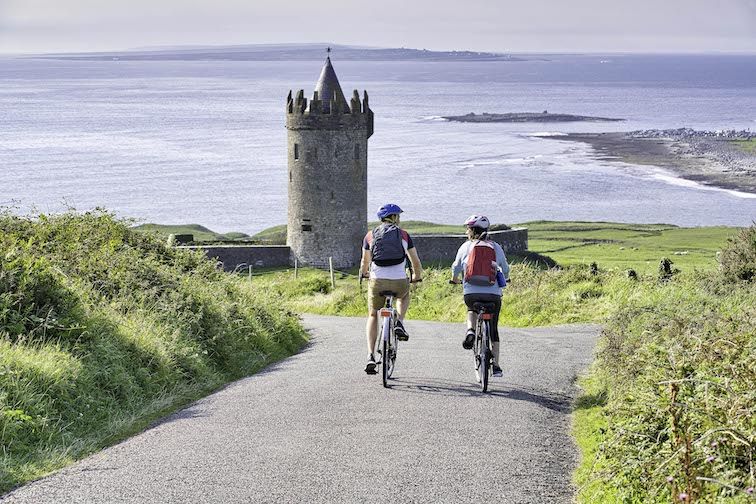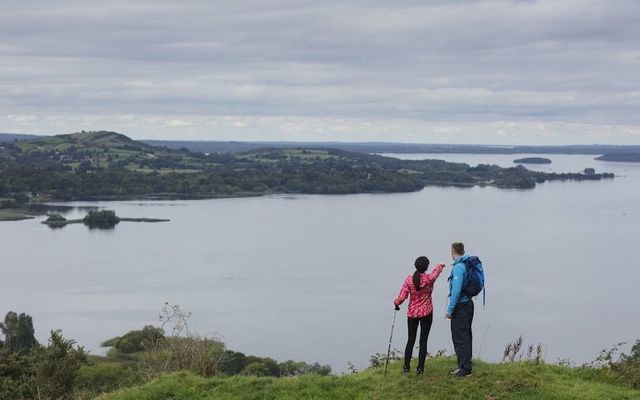County Clare has broken into the Top 40 of the Global Destination Sustainability (GDS) Index, coming in number 38 on the list as one of the most sustainable destinations in the world.
The Irish county joins the illustrious company of Paris, Singapore, Copenhagen, Melbourne, Paris, Milan, Barcelona, Berlin and Helsinki in the Top 40 GDS Index, considered the world’s leading sustainability benchmarking and performance improvement program for destinations.
County Clare was assessed under 69 separate indicators across four key areas in an intensive audit facilitated by the Shannon Region Conference & Sports Bureau, with input and support from Clare County Council, the Burren and Cliffs of Moher UNESCO Global Geopark, the Burren Ecotourism Network, Fáilte Ireland and the local tourism trade.
“Fantastic work is being undertaken by local agencies and the tourism trade on an individual and collective level to further improve the sustainability strategy and performance of County Clare as a tourism and events destination," said Cllr. Joe Cooney, Cathaoirleach of Clare County Council.
"I hope Clare’s inclusion in the Top 40 list will inspire and engage the tourism sector to explore new ways of becoming a more regenerative, flourishing, and resilient place to visit, meet, and live in. This is already a key focus of Clare County Council working with key stakeholders to implement the key objectives of Clare Tourism Strategy 2030.”

Doonagore Castle, Doolin, County Clare. Credit: Brian Morrison
Karen Ronan, General Manager of the Shannon Region Conference and Sports Bureau commented: “This is a huge achievement for County Clare and is testament to the huge amount of work ongoing in the county as evidenced by the recent establishment, through the implementation of the Clare Tourism Strategy 2030, of a Green Team to reinforce the validity of Clare's commitment in transitioning to becoming more sustainable.”
“Led by our GDS lead Danielle Devaney, the Bureau is committed to building on Clare’s existing credentials to further support The Shannon Region in achieving its sustainable objectives,” added Ms. Ronan.
“Our goal is to further improve awareness and drive the adoption of the United Nation’s Sustainable Development Goals in the business tourism and events sector of the wider region.”
Sam Johnston, Manager, Convention Bureau of Ireland, Fáilte Ireland said, “Established to help destinations, convention bureaus and event planners drive the adoption and recognition of sustainable practices in their regions, the GDS Index is an invaluable measuring tool and a world leading benchmark that celebrates and promotes global leaders in sustainable tourism practices. I wish to congratulate the Shannon Region Conference and Sports Bureau and County Clare on its inclusion in this prestigious list of top 40 performing sustainable destinations, alongside Galway, Cork and Kerry.”
In the auditing process recently supervised by the Shannon Region Conference and Sports Bureau, Clare was assessed in four key areas:
- Environmental Performance focuses on a destination’s performance pertaining to its policies and infrastructure, such as climate change commitment, carbon emissions, renewable energies, resource and water management, public transport, and air pollution levels.
- Social Progress Performance indicates the performance of a destination against indicators of SDG integration, Corruption, Personal Safety, Access to Information and Communications, Health and Wellness, and Inclusivity, using external sources such as the Social Progress Imperative Index, and Corruption Perceptions Index.
- Supplier Performance addresses the sustainability commitment and performance of the local meetings' industry supply chain, including airports, events agencies, hotels, venues, and restaurants.
- Destination Management Performance indicates the sustainability commitment of the Convention Bureau, including questions pertaining to maturity of a destination’s sustainability and regeneration strategy, leadership, communication of sustainability initiatives (to support client planners), and the accuracy of their reporting on sustainability operations.
For more information, visit www.gds.earth.




Comments